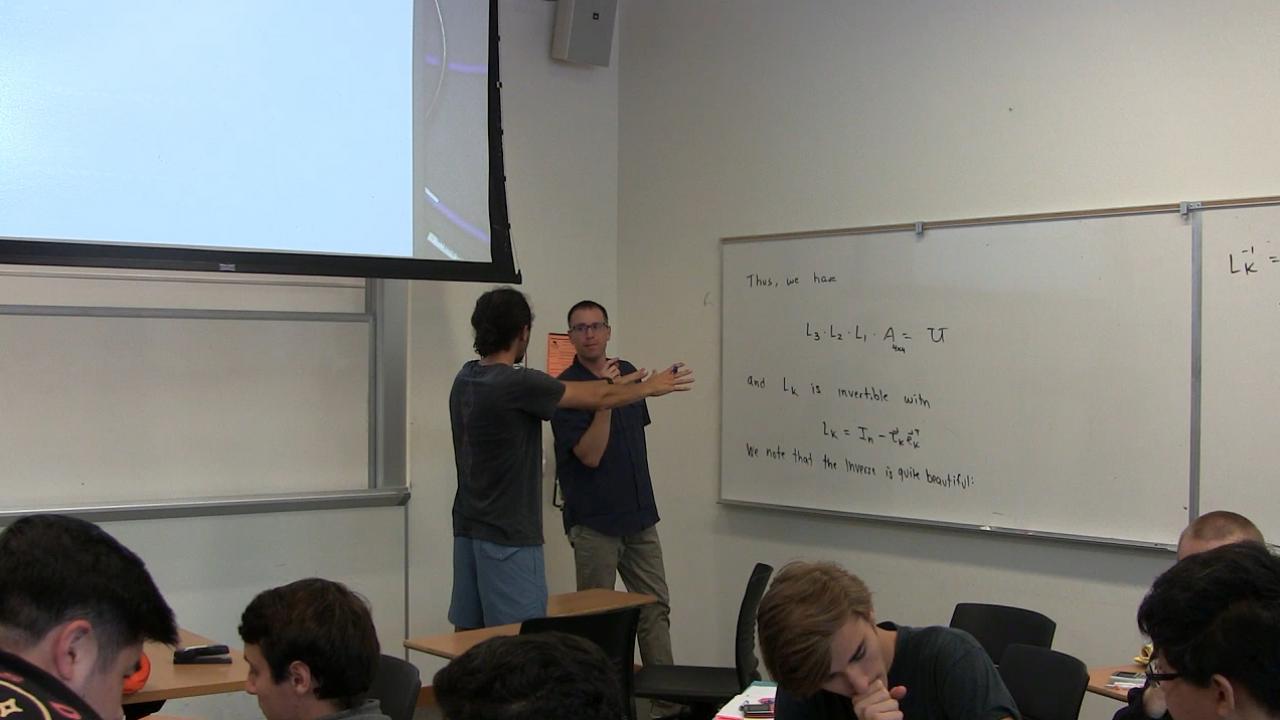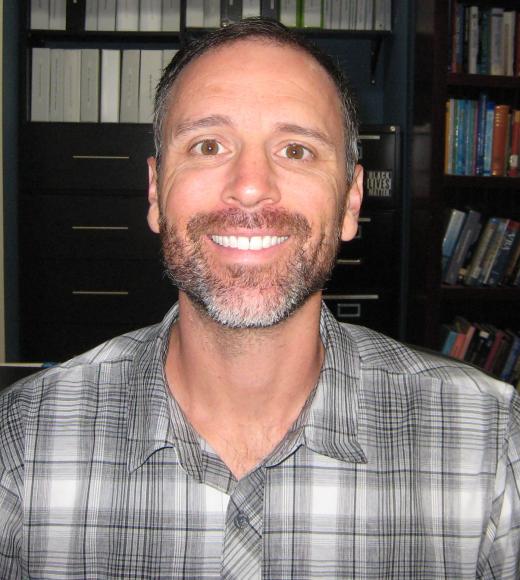
Innovation for Empowering Others
PFTF mathematician promotes technology to advance antiracist learning
Jeff Anderson, Ph.D. ’13 is a mathematician whose ultimate professional goal is, “to use anti-racist learning science to help people thrive.”
The Professors for the Future fellow from the class of 2012-13, who is now an associate professor at Foothill College, uses blogs, a website, Spotify and his own YouTube channel to take students beyond his teachings of linear algebra and show them how they can leverage technology to create a personalized a path to success in the often rigid and complicated structure of academia.
“Math is the water, but the swimming and strokes are the habits of thought and critical thinking skills,” he said. “I hope to empower people to develop their own sense of democratic engagement in our communities, and then to think critically about how they might use their learning skills as tools to serve and empower other people.”

Jeff Anderson, Ph.D. ’13
Professors for the Future alumnus
Finding communities
The genesis of Anderson’s passion occurred when he was pursuing his own doctoral degree. Anderson found the rigor of the coursework to be a fun challenge, but the process for pursuing a doctoral degree to be difficult.
“It was through the struggle, the challenge, and really the pain of trying to navigate the institution and get the academic degree that I started to reach out and find other sources on campus,” Anderson said. “That challenge led me to search in other areas to get my questions answered, which led me to Professors for the Future and so many other things that were available on campus. It’s one of those things where, without those other communities, I don’t think I would have finished my academic degree.”
PFTF gives a better lay of the land
Anderson said his PFTF experience was enlightening because it helped him get “a better lay of the land” of how academia worked as an institution. The more Anderson understood the underside of academia, the more inspired he became to enlighten others and teach them skills to “flip the system.” One way he did this was through leveraging technology in the classroom, long before the pandemic the forced many classrooms throughout the United States to be virtual.
As part of his PFTF experience, Anderson developed and led a project to create a certificate-granting, two-part workshop designed to train UC Davis graduate students and postdoctoral scholars on how to create digital videos of classroom content designed for hybrid delivery. The intent of the workshop was to help future professors use technology not as a means to replace classroom time, but rather to maximize it. By using tools such as video capture of classroom content and online self-paced assignments, Anderson said professors could then dedicate more classroom time to discussing mathematical concepts rather than lecturing.
It is a teaching method Anderson continues to use to this day at Foothill College. He has created more than 600 videos on his YouTube channel. Additionally, Anderson has created a series of real-world examples of how linear algebra manifests itself in student’s current lives and possible future career options from which students can choose their own course work. He creates lessons that are more similar to a choose-your-own-adventure novel rather than teacher-driven directives.
“Instead of me telling students ‘this math works, trust me.’ I can ask them, ‘tell me how well this works and why,’” he said. “We then put students in the position of determining for themselves if the math is valuable.”
He added, “It’s a flipped classroom, and it’s all is directly related to my PFTF experience.”
Empowering students
His PFTF experience also inspired Anderson to partner with two of his students—Henry Fan and Steve Silva—to create The Learning Code. It is an online platform that utilizes videos and blog posts to share research-based learning principles for helping students navigate the U.S. college experience. The goal is to demystify the “extremely complex” system of higher education and teach students, especially those from underserved communities, how to better understand the educational system and the learning skills they need to succeed in college.
“My life forces go into the dreams of my students,” Anderson said. “The more effective I can be in doing that, especially if I teach in a socially conscious way, and can empower those students to create a vision for themselves that is hopefully community-centered, and then help them work toward that vision, then together we can be advocates for a different vision of the world.”
